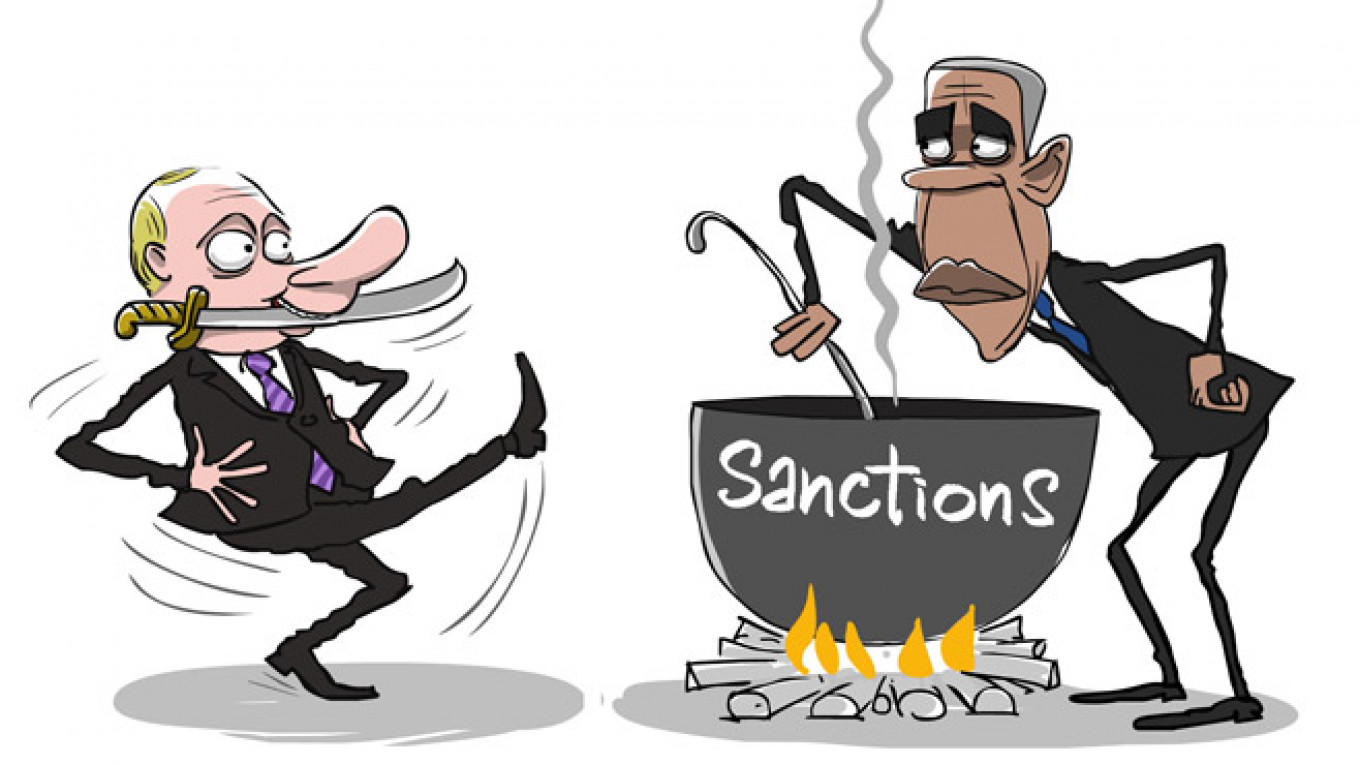A recent report by the Atlantic Council think tank advocating the provision of lethal military assistance to Ukraine highlights the threat posed by Russia to neighboring states.
But the key question missing from the Atlantic Council report is what the West's overall goal in the conflict should be. The possible goals could range from helping Ukraine restore control over the Donbass, to implementing a cease-fire along the current line of control, to simply deterring Russia from similar adventures elsewhere.
The Atlantic Council report assumes but does not prove that Russian efforts to dominate its neighbors pose a grave threat to international security in general because success in Ukraine will embolden President Vladimir Putin to take similar actions elsewhere.
Putin has repeatedly shown that in situations where neighboring states end up with rulers who are hostile to Russia, he has no problem with using military means to change the situation in his favor.
On the other hand, Russian leaders have a firm sense of the limits of both their interests and their power. Putin has been very consistent in claiming a sphere of interests in the former Soviet republics, but has not claimed a sphere outside of this region. Furthermore, Russian military forces are not designed for expeditionary warfare and could not carry out a major operation away from Russia's immediate borders.
Providing defensive weapons to Ukraine will not be sufficient to deter Russia from continuing its attacks in eastern Ukraine. Instead, it will lead Putin to double-down to achieve his goals as quickly as possible, before the weapons are fully integrated into the Ukrainian military.
The result will be further defeats for the Ukrainian military and the possibility of expansion of the conflict well outside the current territory. That will increase pressure on the U.S. to do more to stop the Russian advance.
Putin has for years been offering a deal in the old realpolitik tradition — let's draw a line, you run the world on that side, and I'll run it on this side.
So the question before the U.S. government is what cost is it willing to bear to prevent Putin from exercising that influence and control over unwilling neighbor states? So far, it's been hoping that economic measures would be sufficient; this has proven to be untrue.
Sanctions have been useful in playing a role in weakening the Russian economy and thereby reducing the amount of resources Putin has available for further adventures. But they are a long-term strategy at best, not something that can counter the immediate threat to Ukraine.
Defensive weapons are also likely to work only as a long-term strategy. The Ukrainian military has not shown itself to be particularly effective over the last year. It is unlikely to be able to integrate advanced weapons quickly.
Corruption and incompetence are still omnipresent and there is every likelihood that the provided equipment would be squandered or lost to the separatist forces. The Ukrainian government has been in power for close to a year now and has done virtually nothing to reform the political system or improve the military.
The only way to demonstrate sufficient resolve to actually deter Russian forces and their proxies from consolidating control of the Donbass is large-scale military assistance that goes beyond radars, UAVs, secure communications, Humvees, and light anti-tank missiles.
Providing the types of equipment recommended by the Atlantic Council report would simply give Russia an excuse to introduce more heavy weapons in an effort to win the war as quickly as possible. Changing the equation would require heavier anti-tank weapons, air defense systems, and possibly tanks and armored vehicles from former Warsaw Pact states such as Poland.
It may also require NATO personnel on the ground to demonstrate the requisite seriousness of intent. This would not have to be a large force, but could simply be a limited contingent providing training and support.
Such a course of action greatly raises the stakes and the possibility of a major war. The real question that Western leaders need to answer for themselves is whether they are willing to take such a risk for Ukraine.
If they are, then they should introduce sufficient force to indicate that they are serious. If they are not, then it is better to avoid half measures that are likely to make the situation on the ground worse for noncombatants while failing to change the balance of forces in the conflict.
Dmitry Gorenburg, Ph.D., is a senior research scientist with CNA Corporation's Strategic Studies division and an associate at Harvard University's Davis Center for Russian and Eurasian Studies. The views expressed here are his own.
A Message from The Moscow Times:
Dear readers,
We are facing unprecedented challenges. Russia's Prosecutor General's Office has designated The Moscow Times as an "undesirable" organization, criminalizing our work and putting our staff at risk of prosecution. This follows our earlier unjust labeling as a "foreign agent."
These actions are direct attempts to silence independent journalism in Russia. The authorities claim our work "discredits the decisions of the Russian leadership." We see things differently: we strive to provide accurate, unbiased reporting on Russia.
We, the journalists of The Moscow Times, refuse to be silenced. But to continue our work, we need your help.
Your support, no matter how small, makes a world of difference. If you can, please support us monthly starting from just $2. It's quick to set up, and every contribution makes a significant impact.
By supporting The Moscow Times, you're defending open, independent journalism in the face of repression. Thank you for standing with us.
Remind me later.


